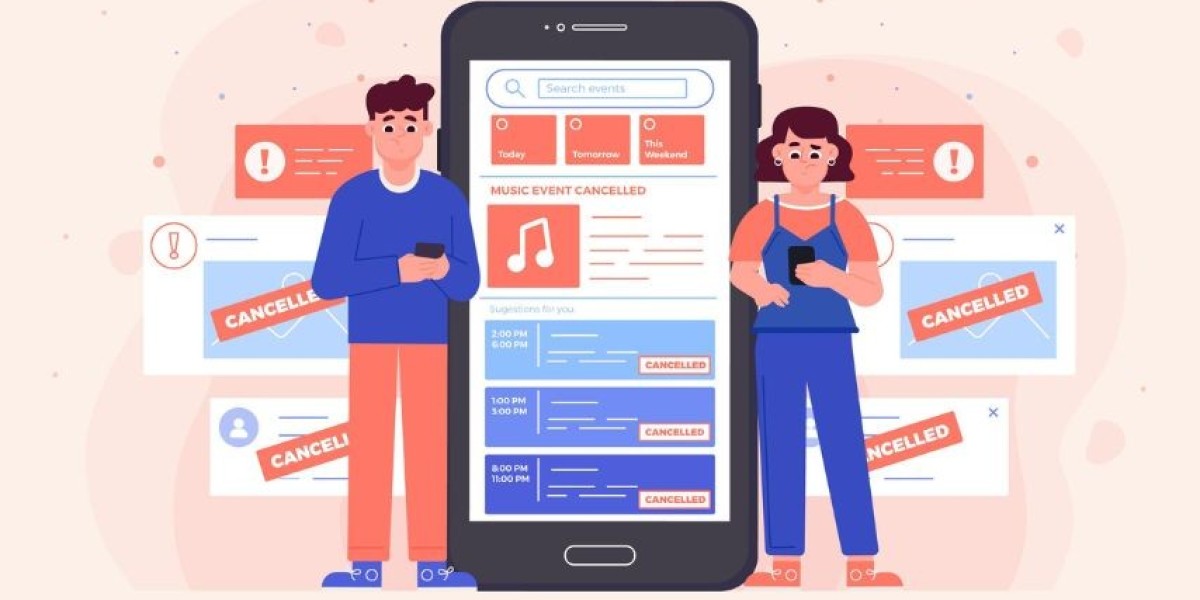Gojek is a hugely popular super app based in Southeast Asia that offers on-demand delivery, transportation, and payment services through a single mobile platform. Since launching in 2015, it has rapidly expanded across multiple countries in the region and become a multi-billion dollar company.
Due to Gojek's extraordinary success, many entrepreneurs and startups now wish to replicate its business model by launching their own versions of the "super app" in other international markets. However, choosing the wrong development partner to build such a complex multi-sided marketplace app can spell doom for the whole project.
This blog guides business owners on how to carefully select the most suitable mobile app development team that is capable of creating a high-quality clone of Gojek tailored to their needs and vision. By following the steps outlined here, one can minimize risks and optimize chances of success for their Gojek clone venture.
Define your requirements
The first step is to define in detail the key functional and technical requirements for your proposed Gojek clone. Some aspects to consider include:
Core features - Decide which Gojek services you want to replicate like food/goods delivery, ride-hailing, financial services etc.
Target geographies - Specify the countries/regions where the app will launch initially and any plans for future expansion. Internationalization requirements differ based on this.
Platform coverage - Determine if the app needs to be developed for Android, iOS or both platforms. Cross-platform compatibility is essential.
Budget and timeline - Clearly define your budget parameters and the expected project duration to hit milestones and go live.
UI/UX designs - If designs are already ready, share style guides and wireframes. Else budget for upfront design work.
Third-party integrations - Note any external APIs or payment gateways that need incorporating.
Capturing all such criteria at the start helps potential teams assess feasibility and gives you a baseline for comparing their technical proposals. Do not proceed without documentation of requirements.
Research potential vendors
With requirements in hand, begin researching suitable development companies or freelancers online. Evaluate their profiles across multiple factors:
Portfolio and reviews - Look at past work samples and client testimonials on websites and third-party review websites to gauge quality and credibility.
Experience - Check if they have developed apps in similar complex multi-sided marketplaces or super app domains before. Experience building Gojek/Grab style apps is a big plus.
Tech stack expertise - Ensure the vendor is adept at building feature-rich, scalable mobile apps on your targeted platforms using suitable programming languages like Java/Kotlin for Android or Swift for iOS. Experience with cloud infrastructure, APIs and database technologies your project needs is important.
Industry credibility - Preferably choose development partners with legitimate business existence of 3-5 years, respected clientele, and established processes over solitary freelancers or startups.
Location and communication - Consider if you need a vendor located in your region or country for legal/operational requirements. Check language abilities for effective collaboration.
Narrow down 3-5 vendors that best fit your project prerequisites based on this initial screening. Interact with their representatives to get better clarity before finalization.
Check development expertise
Once potential partners are shortlisted, dive deeper into evaluating their technical skills and abilities:
Coding practices - Ask for sample apps or open-source code to review formatting standards, code quality, architectural patterns, testing practices, library usage etc.
Development process - Understand their software development lifecycle methodology like waterfall, agile, its tools and project management procedures.
UI/UX design skills - Check designers' portfolios. Know design software proficiency and processes like wireframing, prototyping, usability testing etc.
Platform expertise - Gauge experience building compatible versions for Android and iOS with platform-specific optimizations, crash reporting etc.
Database modeling - Evaluate how they design, normalize and optimize databases for performance and scalability.
Payment integration - Important for super apps. Look for proven expertise integrating popular payment gateways per your business needs.
API development - Building REST APIs is critical for a super app. Check past API projects and swagger documents.
Pay attention to gaps and doubts during these technical discussions. Select companies displaying solid front-end and back-end development skills specific to mobile-first hybrid/native approaches. Visit Gojek like app solution From Zipprr
Assess customization abilities
Beyond technical skills, the development team's customization flexibility is also crucial for a complex custom app project:
Requirement analysis - Evaluate their process of understanding your business domains, current processes, target users and markets.
Customization proficiency - Check qualitative and quantitative abilities to build tailored features within given constraints.
Unfixed cost estimation - Enquire how additional requirements are accommodated without scope creep through change requests.
Future-proofing - Discuss strategies for accommodating new use cases, expansion plans, platform upgrades with minimal efforts later on.
Maintenance support - Clarify support timelines, SLA commitments and processes to introduce post-launch enhancements seamlessly.
Look for partners exhibiting comprehensive expertise in requirement analysis skills, adaptive project management techniques and flexibility in their development approach. Dedicated customization ability is key.
Evaluate design and UX capabilities
Given your app needs to appeal to multiple user types across regions, strong design competence is imperative:
UI portfolios - Check designers' past mobile app UIs for visual consistency, elegance and responsiveness across platforms.
Prototyping skills - Assess use of tools like Figma, ProtoPie, Adobe XD for interactive prototypes that aid reviews early.
User research - Inquire user testing methodologies to build intuitive, needs-based experiences for all users.
Iterative approach - Prefer vendors practicing agile UX design with frequent stakeholder feedback and refinement.
Cross-platform optimization - Evaluate designers' aptitude in crafting single designs that render well across devices with varying specs.
Localization readiness - Check their process of customizing UI strings, images and flows for global audiences.
Give priority to teams deploying user-centric design philosophies, leveraging modern design tools with extensive cross-cultural experience.
Scrutinize project management skills
Proper supervision of scope, schedules and quality is critical for large app builds. Audit vendors' management abilities:
Methodology - Find out standardized and customized processes followed based on your needs.
Tool proficiency - See demos of project management software used for estimating, planning, resource allocation and task tracking.
Communication standards - Enquire reporting structure, meeting frequencies as per your collaboration needs.
Risk mitigation - Discuss contingency plans for unforeseen blockers or scope adjustments.
Change management - Evaluate flexibility to methodically incorporate changes without cost/time overruns.
Status updates - Transparency in updates across milestones via project dashboards and detailed reports is a good sign.
Prioritize transparent partners exhibiting organized, technology-backed governance practices focused on deadline adherence.
Test development process
Closely evaluating software development lifecycles helps ensure quality code delivery:
Methodology insights - See presentations on their iterative or phased processes for rapid user feedback and refinements.
Coding practices - Discuss coding standards, design patterns, code review policies, version control, testing rigor etc.
Quality assurance - Ask about integration, UI, load, API testing techniques including test case documentation.
Deployment planning - Check release planning and monitoring of code in production environments.
Documentation practices - Assess if design, architecture and technical documents are maintained per engagement.
Scaling and optimizations - Enquire strategies for performance profiling and optimizations post-launch.
Give preference to nimble, transparent partners known for institutionalized processes rigorously focused on outputs and timelines.
Explore support infrastructure
Evaluate commitment to your app and business needs beyond development:
Post-launch support SLA - Clarify quick response times guaranteed for bugs, enhancements or issues.
Upgradability - Check policies for platform, plugin or framework updates keeping code future-proof.
Monitoring tools - Ask about application performance monitoring, logging, crash reporting and analytics integration experience.
Helpdesk proficiency - Comfort using helpdesk software like Zendesk for centralized coordination is a plus.
Security audits - Look for established processes to identify vulnerabilities on code changes or updates.
Disaster recovery - Discuss protocols to minimize downtime from outages through options like backups, CDNs.
Training capabilities - Find out documentation practices and demos for internal training on app usage and maintenance.
Check company credibility
To ensure sustainable success, evaluate vendors' organizational credibility:
Leadership experience - Founders' track record in delivering similar projects sets realistic expectations.
Financial stability - Mitigates risks of vendors being acquired or shutting down mid-project.
Certifications - Look for standards like ISO 27001 demonstrating security compliance maturity.
Client relationships - Positive reviews from marquee customers in similar domains signal reputation.
Awards/recognitions - Milestones like partner/vendor awards boost confidence in quality commitment.
Transparency - Willingness to disclose case studies, provide references transparently indicates confidence.
Warranties - Check policies and timelines supporting initial project SLAs and uptime commitments.
Well-established development studios with proven capacity inspire greater trust over small teams.
Negotiate commercial terms
Commercial negotiations ensure fair deals for both parties:
Cost estimation - Compare detailed cost breakups basis specifications from multiple vendors.
Payment schedule - Reasonable milestones prevent over-commitments yet ensure work progress.
Agreements - Review contracts clarifying scope, exclusions, change request fees, ownership etc.
Taxes and duties - Factor additional development and operations taxes as applicable.
Exchange rates - Consider fluctuations if payments involve currency conversions.
Penalties - Discuss liability waivers or penalties for delays attributable to either party.
Insurance - Check if vendor carries errors and omissions coverage for risks.
Be absolutely clear on commercial expectations to avoid potential disputes later.
Choose the right cultural fit
Crucial soft criteria when interacting closely over months:
** Alignment** - Ensure work ethics and management styles complement your leadership.
Collaboration - Compatibility fosters open ideation, problem-solving versus conflicts.
** Commitment** - Passion towards deadlines and quality surpasses monetary goals.
Communication - Comfort discussing progress, issues in regular catch-ups versus delays.
Flexibility - Adaptability to changes shows understanding versus rigidity.
Timezones - Carefully consider if distances impact meetings, real-time coordination.
Responsiveness - Quick replies on mails, messages build confidence over delayed responses.
A harmonious relationship helps teams synergize better despite geographic distances.
Check availability and timelines
Important project factors:
Timelines - Confirm start date alignment and capacity to commit resources smoothly.
Sprints - Clarify realistic timeframes to develop MVP and advanced features commitments.
Milestones - Agree on tangible, testable deliverables to track progress frequently.
Contingencies - Understand buffers for unplanned scope increases, leaves, public holidays etc.
Pilot testing - Check availability for user testing limited functionalities before full roll-out.
Graded launches - Staggered country launches if global scope needs phased executions.
Accommodating all vendor constraints upfront prevents unrealistic expectations.
Conclusion
Carefully evaluating a mobile app development partner based on these technical, process and cultural parameters helps source the best match for your Gojek clone concept and business vision. With efficient planning and consensus on all fronts, entrepreneurs can optimize chances of collaboration success and app commercialization as per roadmap. Following a diligent selection process ensures choosing competent, proven teams equal to building your dream super app project.



